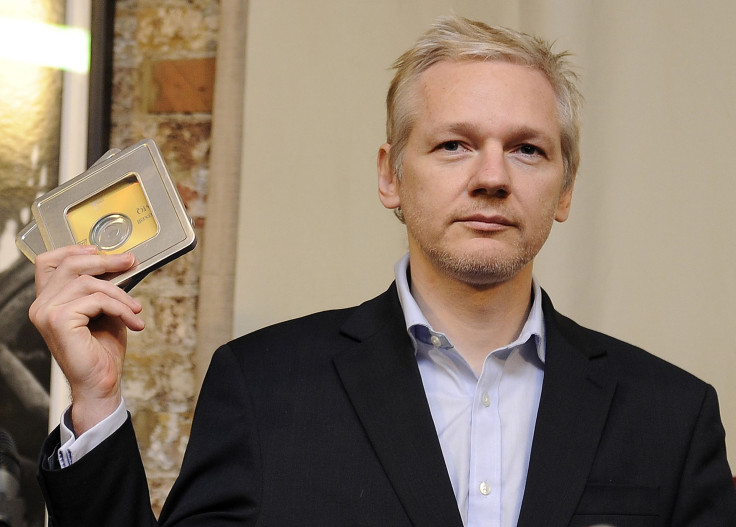Julian Assange Calls UN Decision A Vindication And Says UK And Sweden Must Respect Findings

Julian Assanage, the WikiLeaks founder facing assault charges in Sweden, called a United Nations ruling in his favor a vindication and a resounding victory and asked the U.K. and Sweden to respect the findings of the group that said he had been “arbitrarily detained” in the Ecuadorian embassy for more than five years.
Assange, speaking via video video link, said: “Today that detention without charge has been found to be unlawful. I consider the outcome a vindication.” Assange spoke in the wake of the publication of a decision by the United Nations Working Group on Arbitrary Detention, which said the Wikileaks founder was subject to “different forms of deprivation of liberty.”
During Assange's statement, he mentioned his family on several occasions, saying that not easily being able to see his children was among the most significant aspects of his detention. "I would like to say thank you, that I miss my family. That we have today a really significant victory that has brought a smile to my face and I hope many others as well."
Melinda Taylor, a member of Assange's legal team, called on the U.K. and Sweden to “step up to the plate” and do the right thing. Baltasar Garzon, the head of Assange’s international legal team, called on the governments to vacate the international arrest warrant. “The only viable solution, for those who wish to comply with human rights, is to cancel the arrest warrant which is at this moment empty in content and void after the decision of the working group.”
The response from the U.K. government has been to dismiss the findings of the working group. “Julian Assange has never been arbitrarily detained by the U.K.,” a statement from the Foreign Office said. “The opinion of the U.N. working group ignores the facts, and the well-recognized protections of the British legal system.”
Assange had said earlier in the week if the U.N. working group found against him he would simply walk out of the embassy. However, when asked why he doesn't do it now, Taylor said Assange “is not walking out because of the risk of the United States. This case has always been about the fact there is an ongoing investigation into Mr. Assange, into Wikileaks at an unprecedented scale.”
Taylor said Assange is in danger of “cruel and inhumane treatment” and “torture” citing a 2012 report that said Chelsea Manning — who leaked secret documents to Assange and WikiLeaks — had been subjected to similar treatment while being interrogated about her links to WikiLeaks. “Why should Mr. Assange have to face torture, cruel and inhumane treatment?” Taylor asked. “That is not a question we should be putting to anyone in the world.”
The U.K. government says Assange is voluntarily avoiding arrest by choosing to remain in the Ecuadorian embassy. “An allegation of rape is still outstanding and a European arrest warrant in place, so the U.K. continues to have a legal obligation to extradite him to Sweden,” the statement said.
The U.K. government has said it will contest the U.N. working group's findings but Assange Thursday said the U.K. cannot appeal the decision as the U.K.'s issues with the findings “have no relevancy in terms of law. It is the end of the road. Those arguments are lost. There is no appeal.” However the working group said both the U.K. and Sweden have two months to appeal the decision.
Assange has been in living in the Ecuadorian embassy in London for five years, one month and 29 days since seeking refuge there in June 2012 after Swedish officials demanded his extradition for interrogation over sexual assault allegations. The 44-year-old has not been charged with any offense in the case, and has denied the allegations.
© Copyright IBTimes 2025. All rights reserved.




















